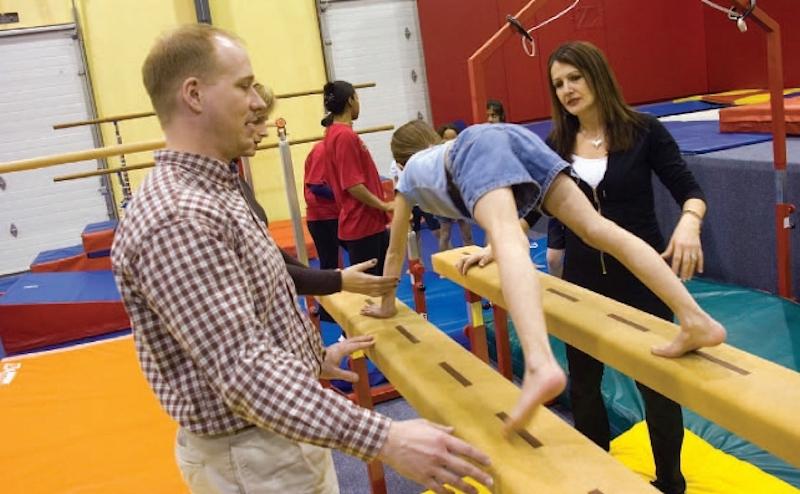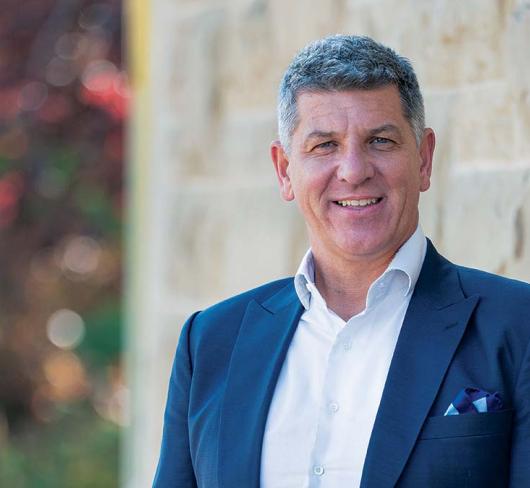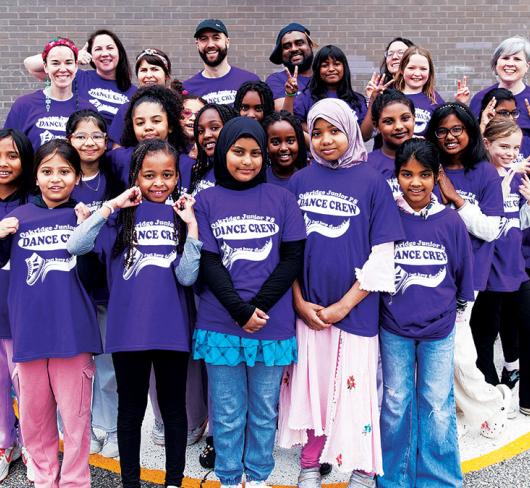
Taking Time To Learn: Don't Sweat the Active Stuff
A collegial approach helps teachers overcome fear of physical education.
ETFO’s Summer Academy workshops are a great learning and networking opportunity for both presenters and participants. Our workshops highlight the wealth of knowledge that we stand to gain from our interactions with one another.
These are active three-day sessions. Our slogan is “Come prepared to participate,” though we stress that it’s okay to sit back and simply observe at various times throughout the day. Participants have an opportunity to work in both large and small groups. We encourage them to share their own experiences, whether they’ve just stepped into the profession or they have 25 years or more under their belts.
Our typical day starts off with an assortment of ice-breaker exercises that participants can easily adapt to any audience, such as leading a group of students or facilitating a professional learning session for staff or colleagues. We get the participants up and moving, using tried and tested games and activities that are sure to get even the most hesitant of students active.
Throughout the day we investigate various models for putting in place daily physical activity (DPA) and challenge participants to decide for themselves which ones best suit their unique needs. We have small groups look at a variety of scenarios and encourage them to discuss safety guidelines and recommendations for each situation.
For the generalist teacher, knowing where to go for help is half the battle. After facilitating various health and physical education workshops I realized that many teachers are not familiar with the wealth of resources available to them. The OPHEA (Ontario Physical Health and Education Association) curriculum binders, and programs and resources provided by CAHPERD (Canadian Association for Health, Physical Education, Recreation and Dance) and CIRA Ontario (Canadian Intramural Recreation Association), are but a few of the many we highlight. We provide the group with time to familiarize themselves with various websites, agencies, and health and physical education links that can assist them with their teaching.
Raising participants’ comfort level in the area of physical activity helps them to implement programs and make a genuine impact at their school. At our sessions, teachers learn from us and from each other, sharing ideas and strategies for using the space and resources they have at hand. We demonstrate activities that use the school hallway, the playground and even the smallest classroom.
Guest presenters give us an innovative look at the most recent publications and resources. This part of the session is fun-filled and energetic, as we all get involved in a variety of rock, paper, scissors games and fitness circuit training stations that challenge each of us to beat our personal best!
We also look at integrating physical activity with the development of literacy and numeracy skills as we play games of Tennis Ball Scrabble, Math Match, Number Sentence Balancing, and Active Storytelling. Teachers particularly enjoy this portion of the workshop, since they are the curriculum experts who can easily link various activities to their grade-specific curriculum expectations. The possibilities are endless, as we brainstorm and share an assortment of great ideas. We encourage them also to have their stu- dents make suggestions for variations of games and activities.
We discuss creative timetabling, and participants get an opportunity to share the model used in their school. The group looks at pros and cons of the various models, and we encourage them to take a little of this and a little of that to create a model that works best for them. With their rotary timetables, intermediate schools often choose whole-school DPA and designate a specific 20-minute time slot each day, to ensure that all students are active. The schoolwide focus sets a great tone and underlines the importance of DPA. On the other hand, giving teachers the opportunity to incorporate the 20 minutes into their own timetable where it best fits allows for greater opportunities for integration with other subject areas, sharing of equipment and creative use of space.
At the ETFO Summer Academy workshops we highlight the importance of involving parents and the community at large, and we investigate strategies that help promote professional learning communities. Whatever the focus, working in partnership with all parties results in a strong commitment to a shared vision.
We like to finish off our Summer Academy session with a “make and take” opportunity for participants. A tarp-sized Snakes and Ladders fitness game, a large deck of cards, clothesline fitness, and a bagful of freebies from our friends at OPHEA and CAHPERD are among the many goodies participants take home. Our Summer Academy printed handout is comprehensive and highlights the various activities that we cover over the three-day session.
Finally we exchange email addresses, so that the networking and friendships don’t end with the session. One of the most rewarding aspects of leading the Summer Academy is receiving an email from a past participant who simply wants to say hello and to share a success story of how her class is now participating in 20 minutes of chair aerobics each day, or how he used DeBono’s Six ThinkingHats1 to introduce the DPA initiative to the school’s administrative team and staff.
At every workshop I’ve facilitated, the energy in the room has been contagious, and in a short three days we end up making lasting impressions, not only in our teaching but also in our circle of friends.

